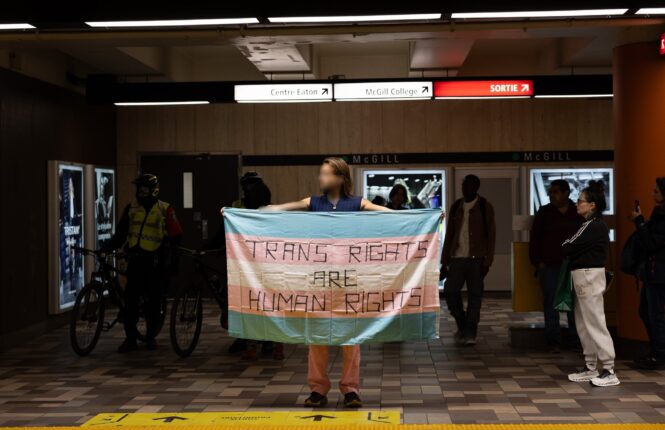 Carolina Millán Ronchetti / McGill Tribune
Carolina Millán Ronchetti / McGill TribuneThroughout 2011, the Chilean student movement made headlines with its large-scale protests, creative demonstrations, and student strikes to reform the largely privatized education system. The movement, which at its apogee included between 500,000 and a million demonstrators, was described by some as one of the strongest movements since Chile’s return to democracy. Although the movement did not achieve all of its objectives, it led to a cabinet shuffle and to a dramatic fall in national presidential approval.
Camilo Ballesteros, former president of the University of Santiago Student Federation and one of the key leaders of the student movement, travelled accross Canada this February to meet with various Canadian protest groups. The McGill Tribune had a chance to ask him a few questions about his experiences leading the student movement in Chile and his thoughts on the student movement in Quebec.
What was it like mobilizing so many people?
People mobilize as a reflection of a need. This means that failed government policies are what mobilize people.
We really did receive a lot of support, though. Once, something really striking happened, and that’s that the march’s main banner wasn’t heading the protest, but was in the middle, because the protest had started way before [the organizers] arrived, there were that many people. It got to the point where we questioned to what extent the support had exceeded the institutionalism of the student movement, and if our institutions could respond to the demands of the participants.
Someone once said that the student movement was like throwing a glass of water on a cat, but a lion had woken up. It was complex, and sometimes we didn’t have answers to what we needed to do. But we tried—you’ll imagine that meeting four times a month for 12 hours, we started finding some solutions … we realized that the student movement wasn’t ready for the amount of support we received, and needed to expand. For example, the Confederation of Chilean Students did not represent students in private universities [who were also protesting]. That was something that changed.
What did you learn in your time as a leader of the student movement?
Many, many things. First, I learned about the need to be humble and listen to the rest. Listen, because one may be making mistakes—one may be making mistakes every day. The need to understand that if we want to make real change, we need to do it as a collective. That each one of us contributes a grain of sand, but that each one’s grain of sand matters in forming something much bigger. I also learned about the need to respect what others say. It’s really fundamental to understand and respect the diversity of opinions.
I’ve learned that a lot of what I thought was important doesn’t actually matter so much. Before, my vision of what makes a movement go forward was a lot more closed-minded, but now it’s more open. It looks to generate majorities so we can move towards concrete objectives.
What are the next steps for the Chilean student movement?
I think the first step is to look back and analyze that it isn’t necessary to repeat last year. We want to keep moving forward, but that doesn’t mean doing exactly what we did before. It means competing with last year, even. At the same time, we need to continue the will to keep moving forward and generate majorities. That’s really the main thing the Chilean movement has to do.
What were your impressions of the student movements you saw in Canada?
I think there’s an annoyance that has been building up slowly. It seems that this society wasn’t so interested [in the issue] but it has been receiving a lot of information. Seeds are definitely being sown and will give fruit when the time comes.
I thought they were quite different [from the Chilean movement]. Something that really surprised me was how structured the marches are. Everyone has similar signs, everyone is very organized. In Chile, it’s a lot more disorganized, a lot more Latin American. Of course, that has pros and cons. The pros are that each one goes to a protest to do what they want and represent what they think is important, of course respecting collective spaces. And this leads to a majority that identifies with the mobilization, this could be emulated in Quebec. Well, I don’t know if it would have the same results.
What would you tell students who have not yet taken a stance on education reform?
I would say that we have one opportunity in life. We are young just once, we can be more rebellious just once, we can be more obstinate, and we dream more. I think we need to take advantage of that opportunity. Once, [former Chilean president] Salvador Allende said “to be young and not be a revolutionary is almost a biological contradiction.” I think that’s true. We may make mistakes, but it’s worst to feel that we had a chance to do something and did not, than to know one made a mistake. Sometimes you have to make a gamble and try to build history.
—This interview has been compiled, condensed, and translated from Spanish by Carolina Millán Ronchetti








